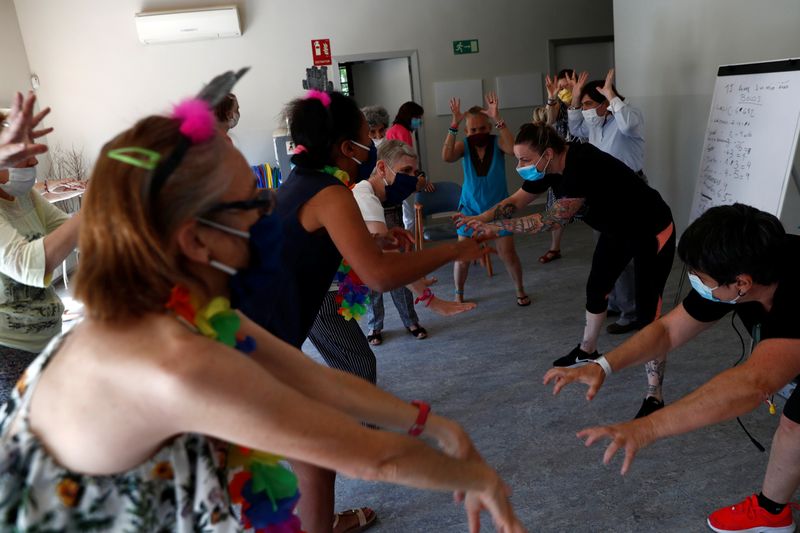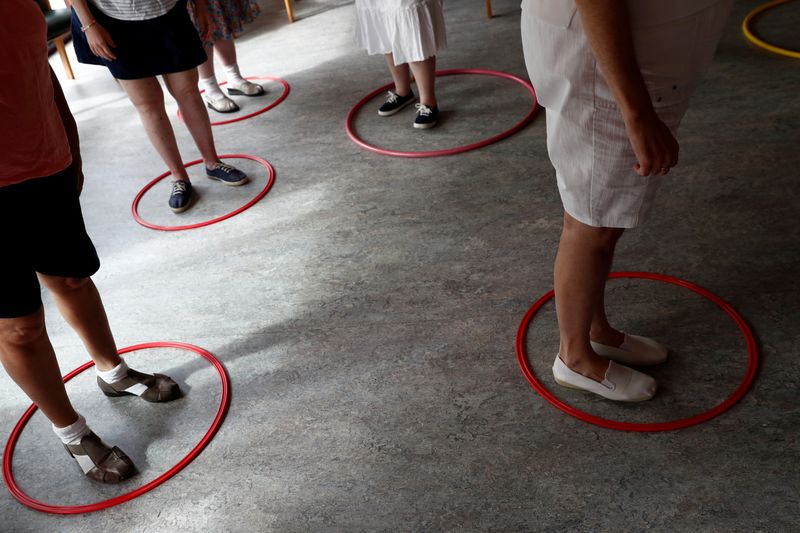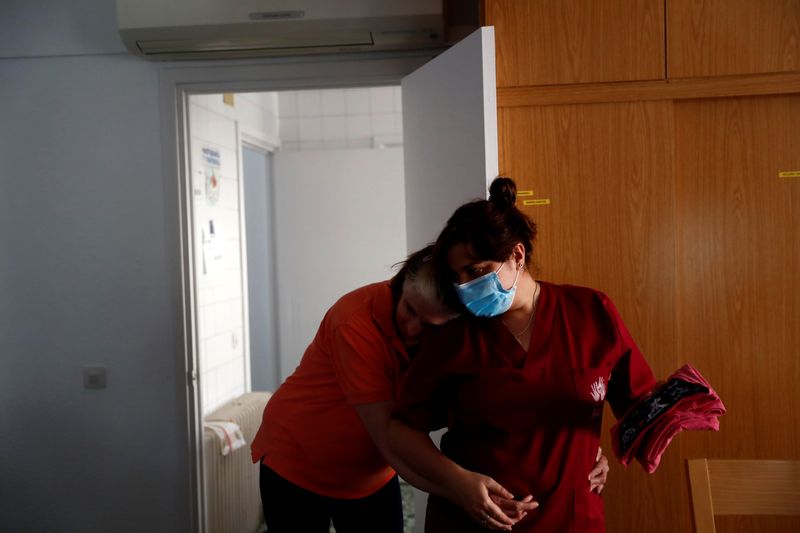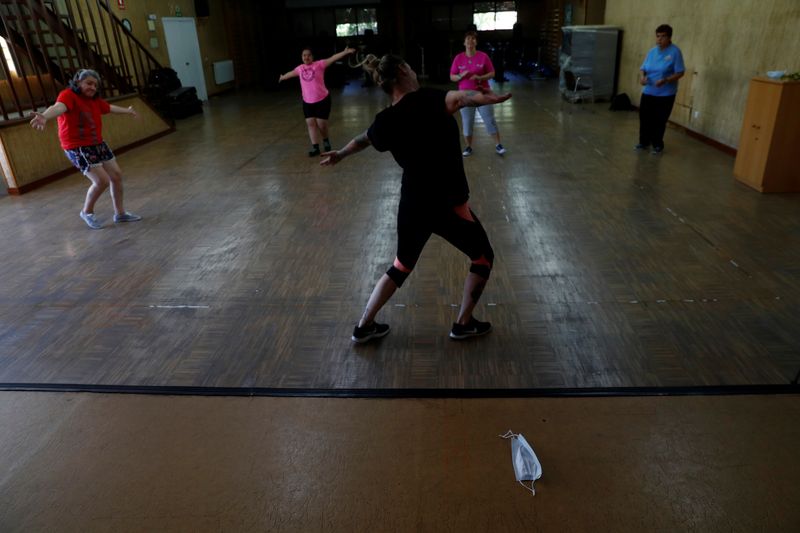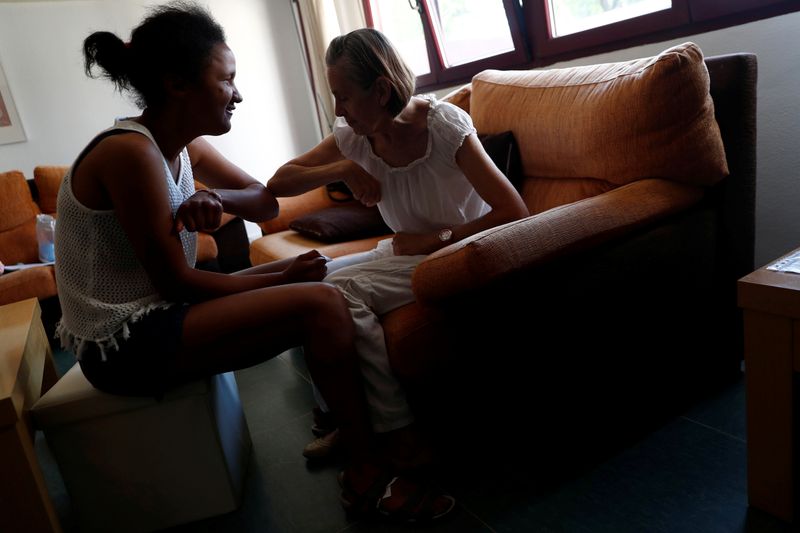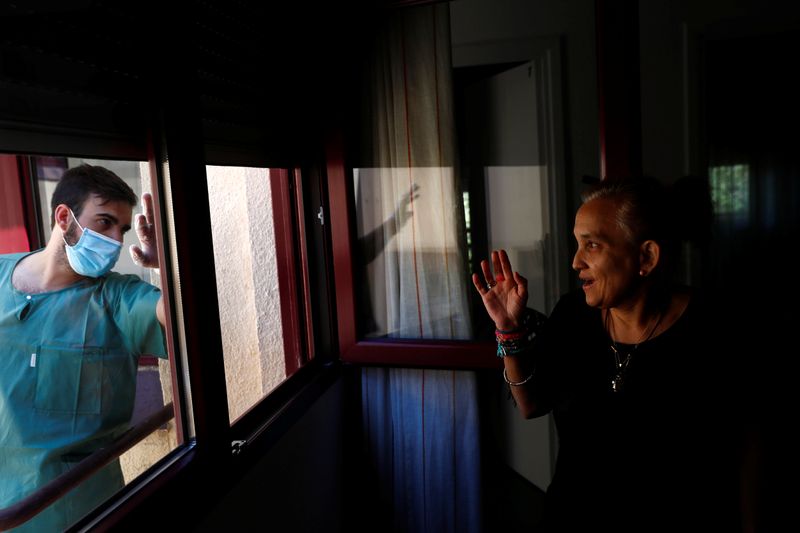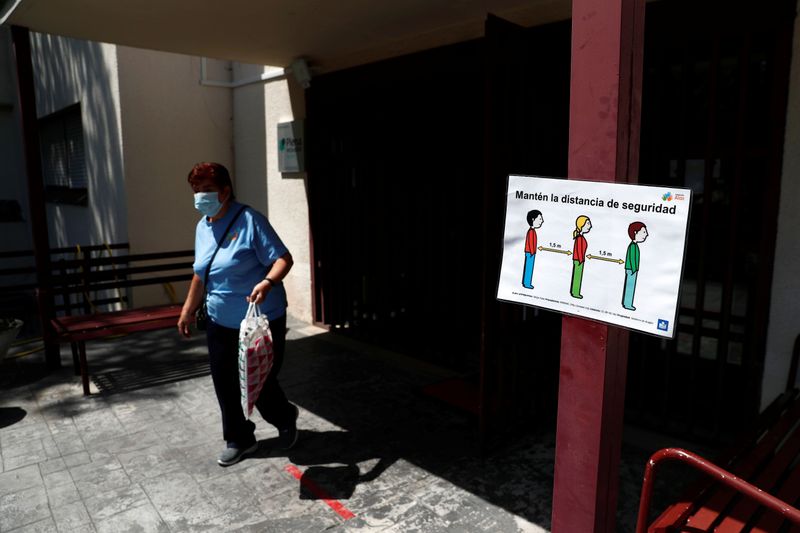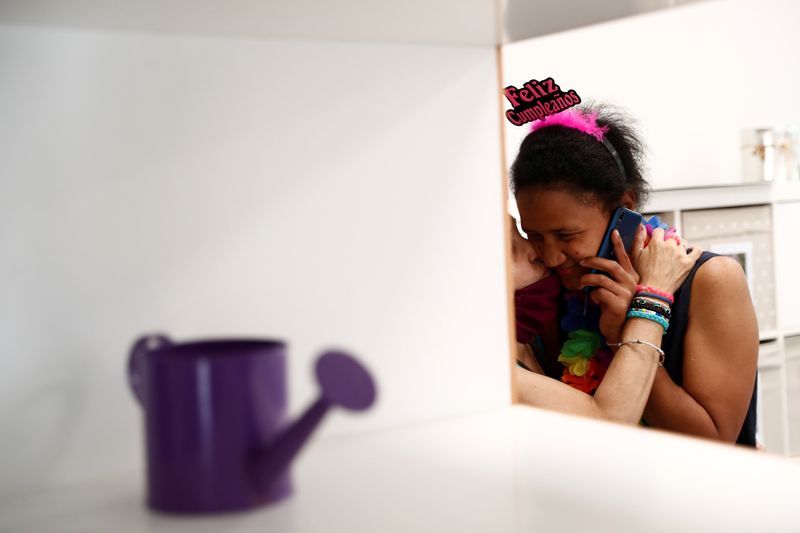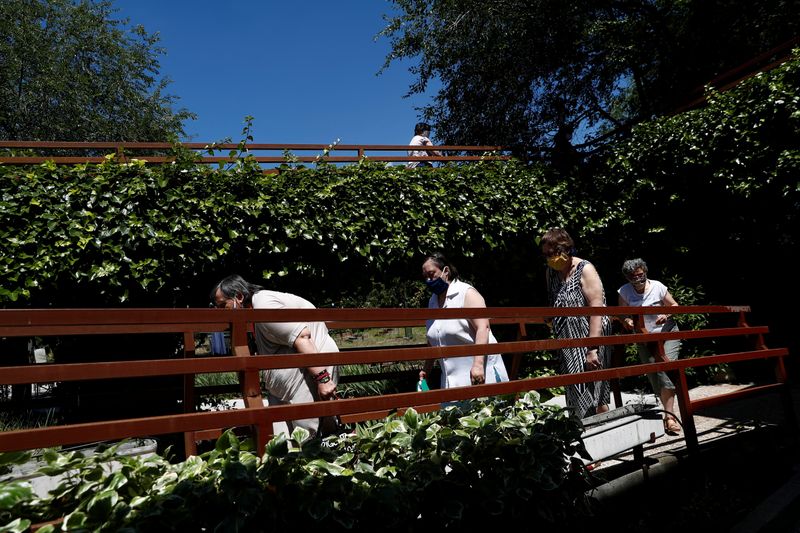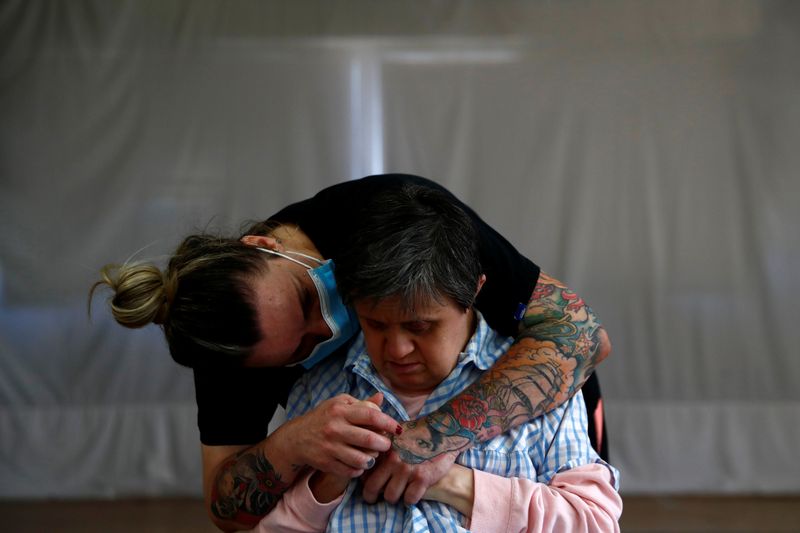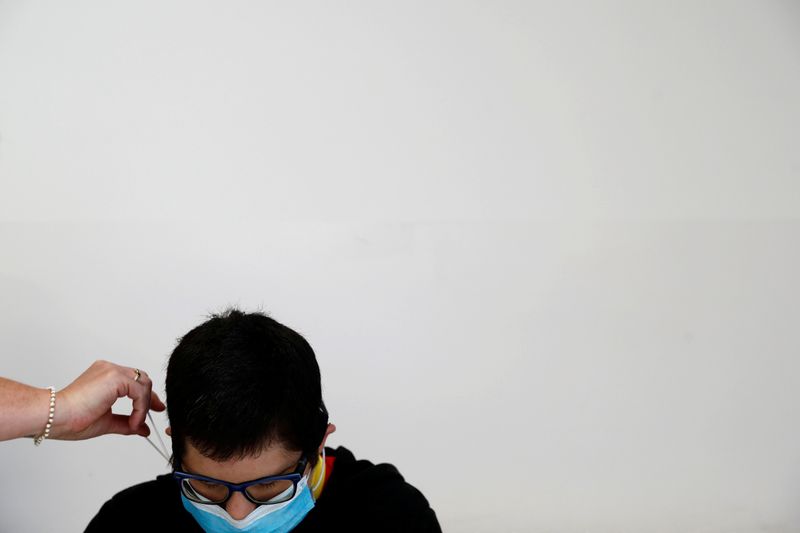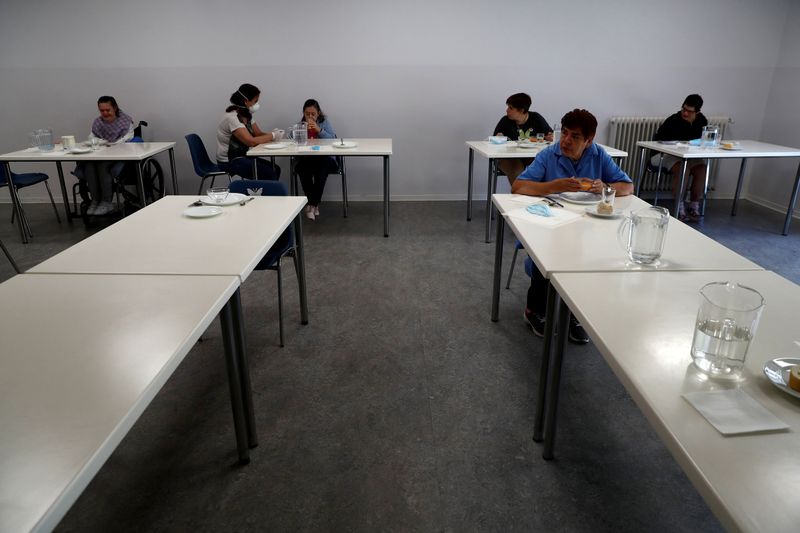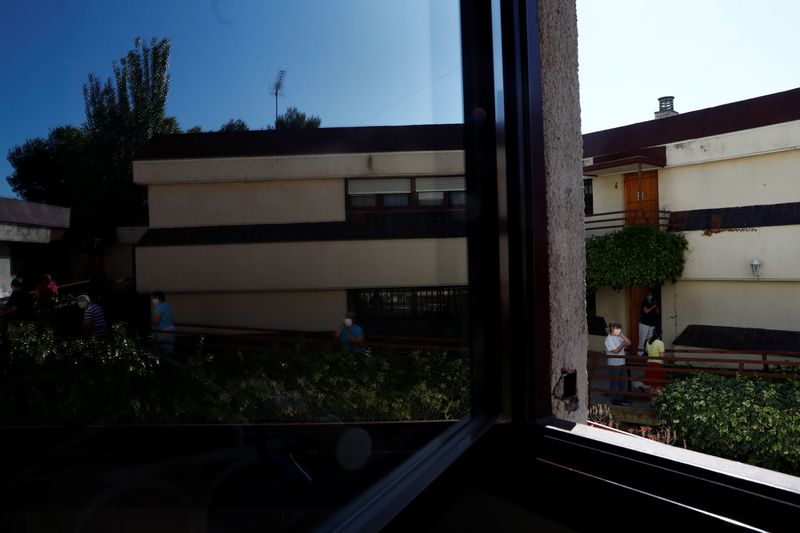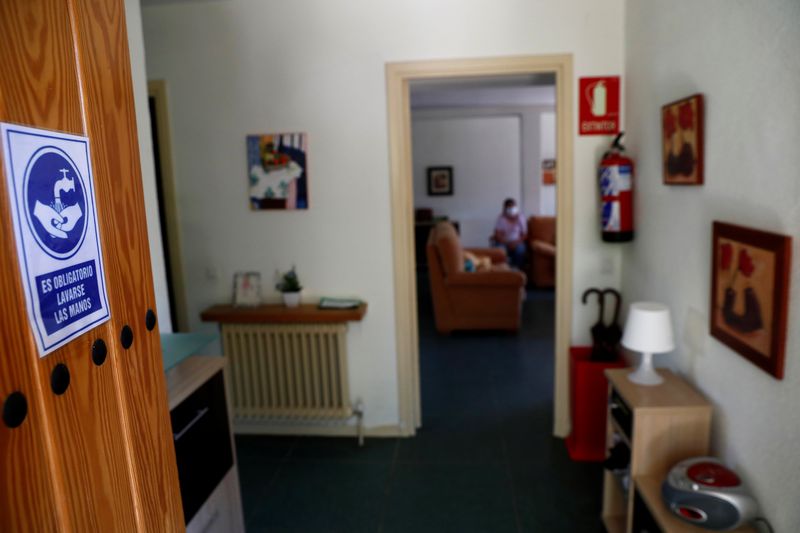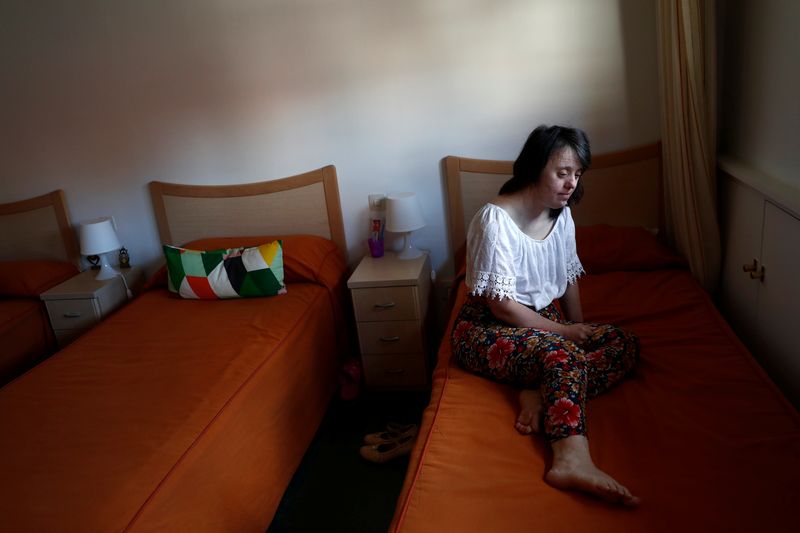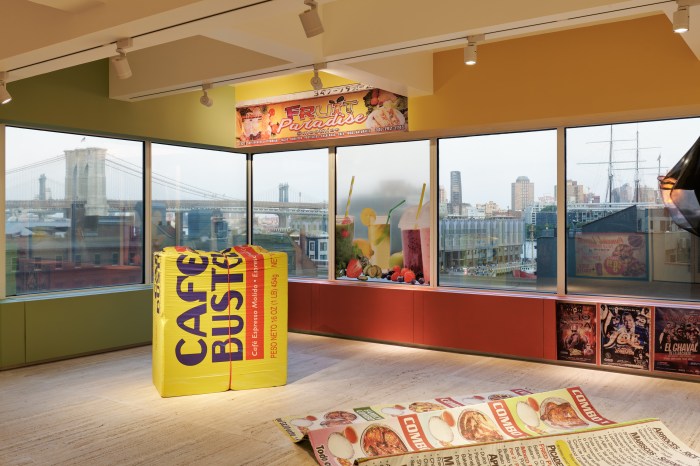MADRID (Reuters) – Adjusting to life under lockdown has been tough for the 52 residents of Madrid’s Alas centre for women with intellectual disabilities, who often struggle to grasp abstract concepts and develop social and practical skills.
Keeping everyone occupied and engaged is key to maintaining morale, said activity coordinator Concha Delgado. Staff use pictograms and stories to explain the dangers of the COVID-19 pandemic that has killed some 27,000 people in Spain.
Vigorously bumping elbows with her friends and singing from behind a smart purple mask, Maricarmen Lara, 55, has adapted better than most to the restrictions but she still misses close physical contact.
“What I want most is for this to end and to be able to go out and hug and kiss my friends, the people I love,” said Lara, who has lived at the foundation since 1981.
In a large hall where a dozen women, including Lara, whirled and jived to a Latin dance track, another group sat to the side, engaged in an ocean-themed jigsaw puzzle.
When the music ended, small cartons of fruit juice were handed out and the women caught their breath, as Delgado set up the television to receive a livestreamed concert.
“Anything we can do that gives them something to look forward to is important. It’s like an oxygen-tank to keep us all going,” Delgado said.
Since Spain eased confinement measures, the residents have been able to socialise with each other and receive visitors, but cannot yet mix with their friends at the recently-reopened day centre.
Many remain wary of infection. Only eight people have rejoined the daily workshops compared with around 90 before the pandemic, with the majority sticking to classes and therapy sessions online.
But the centre’s manager Paula de la Rocha is optimistic more will return soon: “They want to come back when you don’t have to wear a mask and disinfect all the time.”
(Reporting by Susana Vera and Nathan Allen; Editing by Andrei Khalip and Gareth Jones)

